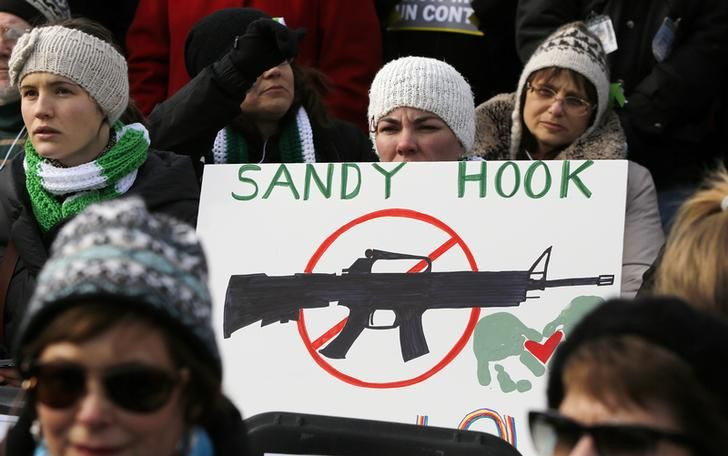How To Buy A Gun: Fewer People Now Buy Guns Without Background Checks, Report Says

A new survey conducted by public health researchers at Harvard and Northeastern universities questioned the 23-year-old statistic that suggests around 40 percent gun sales are conducted without background checks. They found that in the past two years, 22 percent of guns were acquired by their owners without any background check.
The study, published in the Annals of Internal Medicine on Tuesday, found the number to be at nearly half of the previously recorded estimates. Using an online survey, the study questioned 1,613 adult gun owners. Researchers asked respondents if they were asked to produce a firearm license or permit while purchasing their guns. However, researchers also warned the study would pose the same limitations as seen in any self-reported survey data, such as being based on respondents' recall, which could be different from how things actually happened.
Nonetheless, the authors of the study have called their findings positive.
“We’ve been moving in the right direction,” Deborah Azrael, a researcher at the Harvard School of Public Health, was quoted saying by the Trace.
Curiously, the study noted that even in absence of nationwide federal legislation (only 19 states — including Nevada, as of Jan. 1 — have imposed some regulations on private gun transfers over the past 20 years), efforts at boosting screening at local levels are yielding good results.
Another trend revealed in the report suggests that among the states with universal screening laws (since July 1, 2013), only about 26 percent of gun owners claimed to have acquired a firearm without a background check through a private sale. In contrast, as many as 57 percent gun-owners purchased their firearms without background checks from states lacking any universal screening or other such requirements.
On the whole, nearly half of all private gun transactions across all states in the past two years were conducted without any screening. The study found about 77 percent of gun owners who purchased their guns recently from a friend or acquaintance, and 45 percent gun owners who purchased their guns online in the last two years, did not face any screening.
“Compared to ‘94, there is this shift toward more people getting background checks… But we still can’t lose sight of the fact that there are still millions of people every year who are getting guns, often from friends and acquaintances, without them,” Matt Miller, a professor of epidemiology at Northeastern and co-director of the Harvard Injury Control Research Center, told the Trace.
Though the study breaks the myth of the 40 percent statistic extrapolated from a 1994 survey — and has since been repeated by Barrack Obama in the aftermath of the 2012 massacre at the Sandy Hook elementary school and by Hillary Clinton in an October 2015 campaign rally — it does not take away from the problem of gun-related violence in the United States.
Gun violence recap from New Year's Eve weekend (Saturday & Sunday): 88 killed, 199 injured, 3 mass shootings, 216 total incidents. https://t.co/CcvPwyjM22
— The Gun Violence Archive (@GunDeaths) January 2, 2017
© Copyright IBTimes 2025. All rights reserved.






















